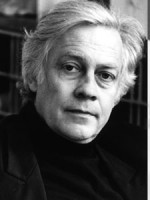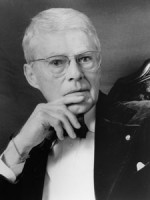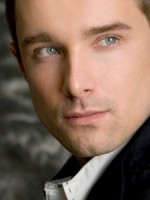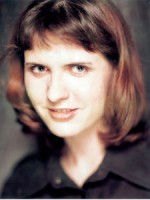Title
I am always amazed by the widespread prejudice that new music must be weird. Even when weirdness was de rigeur, defiers of fashion held their own very nicely and sometimes produced the biggest surprises.
Body
Such thoughts were on my mind about 13 years ago when I pondered Jack Beeson, the well-known opera composer. I first got to know him in 1963, when I entered the graduate program at Columbia University and Jack was the ranking member of the composition faculty. I was immediately impressed by his enormous integrity and by his ornery personality, stuffed with charm and wisdom. (His orneriness amuses him enormously.) By sticking to his own path, even though it was out of fashion, he earned far too much sarcasm from some of the “progressive” young composition students. And I am ashamed to admit that I listened to them too attentively and did not trouble to see what Jack actually was writing. When I finally got to know his music, I realized how negligent I had been. But it was also true that almost all of his mature music is opera, and I was then a mere pianist.
Decades later, when I was planning a 1995 festival at MoMA to celebrate music in New York, I came across Jack’s early chamber opera Hello Out There. Immediately struck by its tremendous power, I instantly programmed it, had the joy of conducting two performances, and decided that I wanted him to have a place in the New Juilliard Ensemble’s repertory. That meant I had to get him to write something, a task complicated by the lack of commissioning funds. I simply told him that if he would write something for the ensemble, I would perform it. (Despite my having conductedHello Out There, I suspected that he associated me so strongly with avant-gardism that my proposal astonished him.) Fortunately, he took me seriously and, in 1999, produced a setting of the popular poem “The Daring Young Man on the Flying Trapeze.” To my horror, it was scored for countertenor. I sadly told him that I felt obligated to use only Juilliard students, and since we did not have countertenors, I could not do it. I could not conceal my annoyance that he had used countertenor, because he knew that Juilliard was unlikely to have one. He explained that he had faced a dilemma because he had also promised a piece to a famous countertenor (who will remain unnamed). But he understood my position and immediately wrote another piece, Ophelia Sings (2000), for mezzo-soprano and ensemble. It is really magnificent—an incredibly moving vision of the Shakespearean heroine. Some readers may have heard it when I revived it for the Juilliard centennial season, in which N.J.E. presented four concerts of pieces composed for it.
As a result of Ophelia Sings, and the incredible experience of hearing Jack’s Lizzie Borden at the New York City Opera, The Daring Young Man remained in the back of my mind. When Michael Maniaci, the superb male soprano, joined our student body, I immediately suggested that we audition him. Michael was spectacular, but his voice—a true soprano—is too high for countertenor repertory. Thus The Daring Young Man remained still unperformed, not only by N.J.E. but also by the famous countertenor who had requested it. It soon slipped off my radar.
As it happens, Jack Beeson is full of the most fascinating stories about musical life in New York, in which he was a major player as a composer, opera conductor, teacher, and foundation director. Last July, I dropped in on him for one of our occasional gab sessions. We were darting from one subject to another when he suddenly said, “I want to hear The Daring Young Man before I die.” While Jack’s spirit is more youthful than most teenagers, and he looks incredibly fit despite decades of keeping diabetes in check, he was about to turn 87. In the immortal words of Donald Rumsfeld ... [Let me say no more!]. And in the immortal words of Milton Babbitt, “What can I say, kiddo?” Mind you, there was not a trace of self-pity in Jack’s voice. He was annoyed that the “famous countertenor” had apparently lost interest in the piece, but felt it gave me freedom of action if I wanted it.
By now, I have more than once had to engage a singer from outside Juilliard, because all suitable students were fully committed, or no one had enough experience for a particular piece. Hiring a countertenor seemed less problematic, and I told him I would do it. Jack, who must have assumed he could count on me, had already tracked down a couple of potential soloists. We quickly heard them and chose Marshall Coid, a Juilliard graduate (in violin), for the role.
The Daring Young Man will thus fly among trapezes for the first time on November 19 in the Peter Jay Sharp Theater. There will be another world premiere, Epyllion, by the young Polish composer Jakub Ciupinski, a 2008 graduate of Juilliard and the first of this year’s two winners of N.J.E.’s competition for composition students. In three other Western Hemisphere premieres, Francesca Anderegg will tackle the exceptionally challenging solo violin part in Vortex, by Raminte Serksnyte, a young Lithuanian composer; Molly Norcross will be French horn soloist in Le temps du souffle (roughly translated as Breathing Time), by Gilbert Amy, one of France’s senior composers; and Ukrainian composer Alexander Shchetynsky hopes to be present to hear his Chamber Symphony (if the heavens and U.S. Immigration are in alignment). Rounding off this varied concert is The Crowded Air, Milton Babbitt’s little 80th-birthday present for Elliott Carter (20 years ago!).










